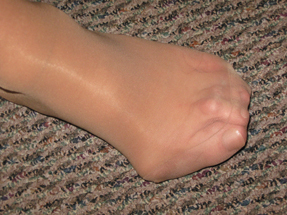New research creates debates on calcium's benefits vs. risks
It has been a longstanding assumption in medicine that calcium, to paraphrase the milk commercial, does a body good.
It has been a longstanding assumption in medicine that calcium, to paraphrase the milk commercial, does a body good.
But a group of researchers from New Zealand has been making some startling findings to the contrary. In a meta-analysis of randomized, controlled trials of calcium supplementation, they found a significant increase in the rates of myocardial infarction (MI) among the patients taking calcium. According to the results, published by BMJ in July 2010, 143 people receiving calcium had an MI compared to 111 on placebo, indicating a 31% increase in relative risk.

Then, at the annual meeting of the American Society for Bone and Mineral Research, the same researchers released a reanalysis of data from the Women's Health Initiative (WHI), which found an increased risk of MI and coronary revascularization in women taking calcium and vitamin D supplements. (This analysis of the WHI differed from prior ones in that it excluded women who were obese or taking calcium outside of the study protocol.)
“We conclude that it's highly likely that there's an increase in risk of heart attack from the use of supplements,” said Ian R. Reid, MD, one of the study authors and a professor of medicine and endocrinology at the University of Auckland in New Zealand.
However, other researchers are not so convinced of the dangers of calcium. Andrea LaCroix, PhD, a professor of epidemiology at the University of Washington in Seattle and a leader of the WHI, is one. She noted that the original analysis of the 36,000-person study found no association between calcium and vitamin D supplementation and cardiovascular problems.
“I do not believe that calcium and vitamin D supplementation at the level we gave it in the WHI increases risk of heart disease and I do not believe that Dr. Reid's evidence is in any way a strong position to overturn the initially reported published findings from the WHI,” she said.
As Dr. LaCroix acknowledged, the dramatic difference in expert opinion could put practicing internists in a quandary. “The poor docs out there are wondering what the heck we're doing here,” she said. But she and other researchers offered some explanations and advice that may be helpful to physicians and patients making decisions about calcium supplementation.
Measuring risks and benefits
One piece of good news is that despite the debate, the actual risk to patients is fairly small. “The meta-analysis does suggest an increase in cardiovascular events around about 25%, which sounds like a lot, but the event rate was quite small in the studies, so the absolute risk is really quite small,” said John G. F. Cleland, MD, a professor of cardiology at Hull York Medical School in England who wrote an editorial that accompanied the analysis in BMJ.
It's a point on which the experts can agree. “Our data don't completely rule out the possibility of a small increased risk, but if there is anything there, it's not very large,” Dr. LaCroix said.
Where the views really differ is on the size of the potential benefit of calcium supplementation. “If we were in a situation of saying, ‘Look, calcium supplements reduce the risk of fractures by 60%,’ then I think it would be a very different equation,” said Dr. Reid. “What we're actually saying is there are hardly any trials that have demonstrated fracture prevention from the use of calcium supplements. When you meta-analyze them, you can perhaps get a 10% decrease in fracture, and you've got to balance that against a 30% increase in MI.”
In Dr. LaCroix's view, however, those reductions in fractures are important. She pointed to the WHI's finding of a 20% decrease in hip fractures among women over 60 who took the supplements. “I think that's a lot of benefit to get from a small amount of supplementation on risk of hip fracture,” she said.
There is some middle ground in the debate, as explained by Kristine E. Ensrud, FACP, a professor of medicine, epidemiology and community health at the University of Minnesota in Minneapolis who researches fracture prevention.
“If you look at all the data combined, there appears to be a modest benefit of combined calcium and vitamin D supplementation in reducing falls and fractures that's most pronounced among older people living in institutions,” Dr. Ensrud said.
The two qualifiers in her statement, the use of combination therapy and the target patient population, also shape her recommendations on the use of supplements. The <@body-ital>BMJ meta-analysis studied trials of calcium alone, while clinicians would be more likely to give it along with vitamin D, said Dr. Ensrud.
The health benefits of vitamin D are another area of major controversy among researchers (see “Experts weigh pros, cons of Vitamin D, “ ACP Internist, November 2009) but it's possible that the combination has a unique effect. “There may be some way that vitamin D protects you from the adverse effects of calcium,” said Dr. Cleland.
Dr. Ensrud favors prescribing calcium and vitamin D together, and targeting those prescriptions at patients who are at increased risk for falls and fractures. “Older housebound or institutionalized individuals, many of them have very low calcium intake and many of them have very low levels of 25-hydroxyvitamin D,” she said.
Even Dr. Reid still sees uses for calcium supplements in some instances. “In the rare situation of someone who has a very low dietary calcium intake which they cannot increase and they have a substantial bone problem, then the use of a small dose of a slowly absorbed calcium supplement taken after a meal is a reasonable option,” he said.
The evidence supports a much narrower approach than some physicians and women currently take, Dr. Ensrud said. She's leery of the widespread prescribing that would almost put supplements “in the water supply,” especially in light of recent research on supplementation.
“A lot of times in observational studies, there's some benefit in terms of dietary intake of a vitamin. Then when we actually do a trial where we test supplements to prevent disease, lately there hasn't been a lot of good news,” she said.
The dietary approach
Of course, there is already an available beverage that provides significant calcium—milk—and it's Dr. Reid's solution to helping patients avoid fractures. “We were telling all of our patients to take calcium supplements too until fairly recently,” he said. “We've said, ‘We don't advise you to take calcium supplements any more. We advise you to get calcium from your diet, so look at having two to three servings of dairy products each day.’”
That dietary calcium intake is the ideal solution, the researchers agreed, but there was some debate about the feasibility. “For most people, getting 1,200 milligrams of calcium a day is hard because it's four glasses of milk. It's a concerted effort to ramp up your calcium intake that way. I'm not sure how fat we would get doing that, but one might express some concern about that, too,” said Dr. LaCroix.
Obstacles may also exist on the physician side, Dr. Ensrud speculated. “Maybe it takes a little bit longer to counsel patients about diet,” she said.
On the other hand, Dr. Cleland would argue that it's calcium supplementation that is taking up physicians' time. “I don't get terribly excited over an increased risk from calcium supplements, but I do get rather excited over the fact that they seem to be useless,” he said. “It's a big waste of time to doctors and nurses who are giving out, monitoring and recommending this treatment.” He favors the use of bisphosphonates in patients at risk of fracture.
Because of the widespread acceptance of calcium supplementation, most trials of bisphosphonates have also given patients calcium, noted Dr. Reid. That's raised some concerns about whether the drugs would work without the supplements, but a couple of trials have found success without calcium, he said. “What evidence there is available does suggest that the available antiosteoporosis medications work quite satisfactorily without the coadministration of calcium. That's an area where further research would be helpful.”
It might seem like further research would also be helpful to resolve the overall debate over calcium's risks and benefits, but that's unlikely to happen, the experts said. “We don't do large clinical trials to prove a disbenefit on people,” Dr. LaCroix said.
However, future research might be able to elucidate the potential mechanisms by which calcium supplements could affect cardiovascular events. Theories include the differing effects of dietary and supplementary calcium on blood calcium levels and the possible effects of calcium on arterial stiffness or clotting.
“If we can understand the entire mechanism, then we may be able to devise ways of circumventing it so that we can get calcium into people other than with food and yet not get the downside of increased risk of MI,” said Dr. Reid. That would be a positive result for everyone concerned about calcium supplementation—researchers, physicians and patients.





